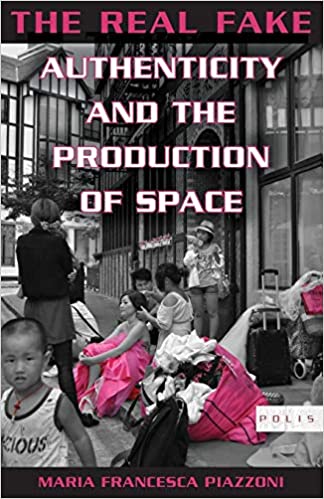
泰晤士河镇——一个在上海建成的类似英语的村庄——同时是许多地方:一个成功的旅游目的地、一个富裕的住宅群、一个农民工城市和一个鬼城。《真假》探索了泰晤士河镇的用户如何将主题空间转变为“假地方”皮亚佐尼将真实性理解为人、地点和意义之间的动态关系,从而实现城市转型。她认为,真实性通过自上而下和自下而上的动态,成为空间的社会和物质生产的基础。人们认为“真实”的道德和审美判断体系在泰晤士河镇得以实现。真实性排除了一些用户,因为它禁止访问和使用,尤其是对移民穷人。然而,真实的想法也鼓励人们每天自发地占用空间,打破村庄的舞台氛围。大多数学者批评主题化,认为它产生了一个“假”的控制城市。皮亚佐尼证明,尽管主题化的排他性仍是毋庸置疑的,但正是“虚假”的体验让泰晤士河镇的用户产生了一种地方感,从而使这一观点复杂化。真实性,即人们构建和空间化其意义的方式,从整体上介入了空间的创造和重塑。
阅读更多
The Real Fake: Authenticity and the Production of Space
Thames Town―an English-like village built in Shanghai―is many places at once: a successful tourist destination, an affluent residential cluster, a city of migrant workers, and a ghost town. The Real Fake explores how the users of Thames Town transform a themed space into something more than a “fake place.” Piazzoni understands authenticity as a dynamic relationship between people, places, and meanings that enables urban transformations. She argues that authenticity underlies the social and physical production of space through both top-down and bottom-up dynamics. The systems of moral and aesthetic judgments that people associate with “the authentic” materialize in Thames Town. Authenticity excludes some users as it inhibits access and usage especially to the migrant poor. And yet, ideas of the authentic also encourage everyday spontaneous appropriations of space that break the village’s staged atmosphere. Most scholars criticize theming by arguing that it produces a “fake,” controlling city. Piazzoni complicates this view by demonstrating that although the exclusionary character of theming remains unquestionable, it is precisely the experience of “fakeness” that allows Thames Town’s users to develop a sense of place. Authenticity, the ways people construct and spatialize its meanings, intervenes holistically in the making and remaking of space.
Read more
OR



![我是海豹突击队第六勇士:美国士兵回忆录[有声读物]](https://www.yousuxue.com/wp-content/themes/riplus/timthumb.php?src=https://sanet.pics/storage-8/0422/BG4xRByC97ZvixSDVNT3hKmoZaZ3dORD.jpg&h=200&w=300&zc=1&a=c&q=100&s=1)
